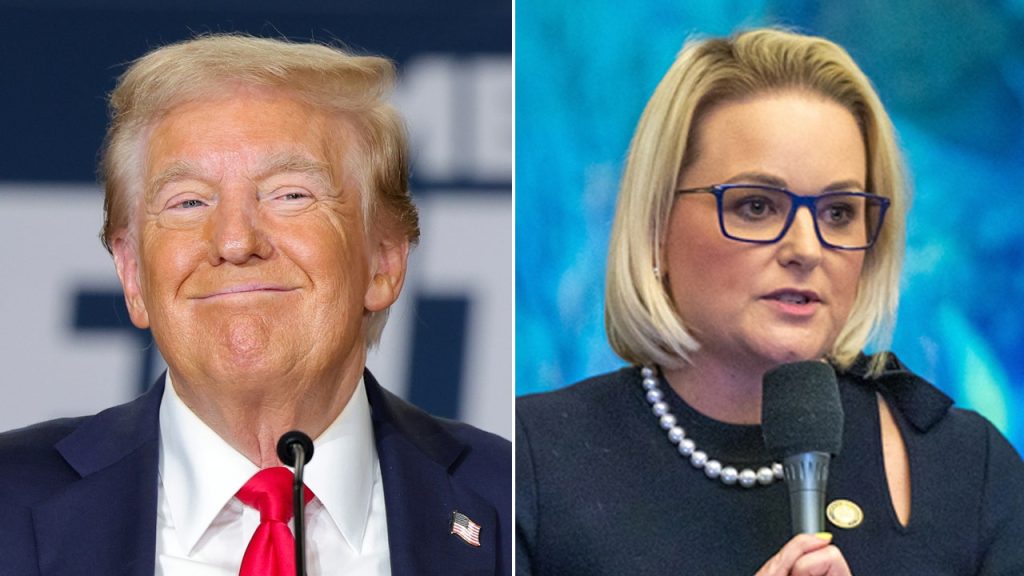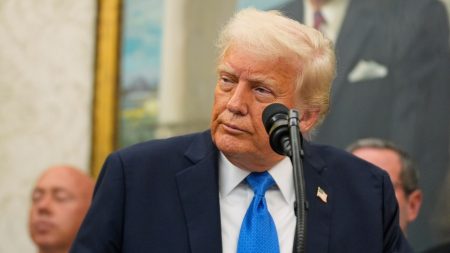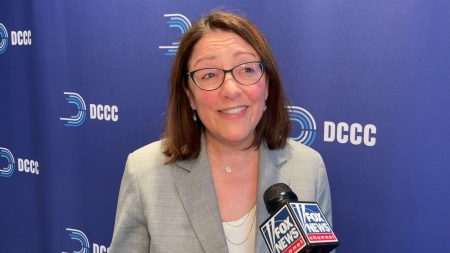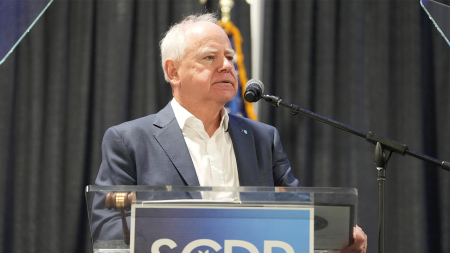Hillary Cassel’s defection from the Democratic Party to the Republican Party in Florida signals a potential shift in the political landscape, prompting both celebration from Republicans and introspection within Democratic ranks. Cassel, a state representative, cited a misalignment of values as the driving force behind her decision, specifically referencing concerns about the Democratic Party’s stance on Israel and its tolerance of what she perceives as extreme progressive viewpoints. This move, welcomed by prominent figures like former President Donald Trump and Florida Governor Ron DeSantis, further solidifies the Republican supermajority in the Florida House of Representatives and underscores the ongoing evolution of political allegiances within the state.
Cassel’s shift in party affiliation marks a notable departure from her previously stated political positions. During her 2022 campaign, she identified as a “proud Democrat” and advocated for traditionally liberal stances, including abortion rights, LGBTQ+ rights, climate change action, and stricter gun control measures. This stark contrast between her past and present political platforms raises questions about the evolving nature of political identity and the factors that influence such significant changes in allegiance. It also highlights the potential for political realignment within the electorate and the challenges faced by political parties in maintaining a cohesive and consistent ideological framework.
The Republican Party’s embrace of Cassel, exemplified by Trump’s congratulatory message and call for other Democrats to follow suit, underscores the party’s strategic efforts to expand its influence and consolidate its power base. This welcoming stance towards a former Democrat also reflects the Republican Party’s attempts to broaden its appeal and potentially attract voters who may be disillusioned with the Democratic Party’s current trajectory. Cassel’s defection, coupled with that of another Florida state representative, Susan Valdés, earlier in the month, indicates a potential trend of Democratic lawmakers reconsidering their party affiliations and finding a more suitable political home within the Republican Party.
From the Democratic perspective, Cassel’s departure necessitates a critical examination of the factors contributing to the erosion of support among some of its members. Cassel’s stated reasons for leaving the party, particularly her concerns about the party’s stance on Israel and its perceived tolerance of extreme progressive ideologies, highlight potential areas of vulnerability for the Democratic Party. Addressing these concerns and fostering a more inclusive and representative platform may be crucial for the Democratic Party to retain its existing members and attract new ones. The party needs to analyze the reasons behind such defections and address the underlying issues that may be alienating certain segments of its base.
The broader implications of Cassel’s decision extend beyond the immediate political landscape of Florida. Her defection serves as a microcosm of the larger political polarization and realignment occurring across the United States. The shifting political allegiances of elected officials like Cassel reflect the evolving dynamics within the electorate and the ongoing struggle for political dominance between the two major parties. This dynamic underscores the need for both parties to adapt to the changing political landscape and to engage in meaningful dialogue to address the concerns of their constituents.
Analyzing Cassel’s decision through various lenses, including political strategy, ideological shifts, and the evolving nature of party affiliations, provides valuable insights into the current state of American politics. Her defection is not an isolated incident but rather a reflection of the broader trends of political realignment and the ongoing struggle for political power. Understanding the motivations and implications of such decisions is crucial for comprehending the complexities of the American political system and anticipating future political developments. This event serves as a reminder of the fluidity of political allegiances and the importance of ongoing dialogue and adaptation within political parties.










